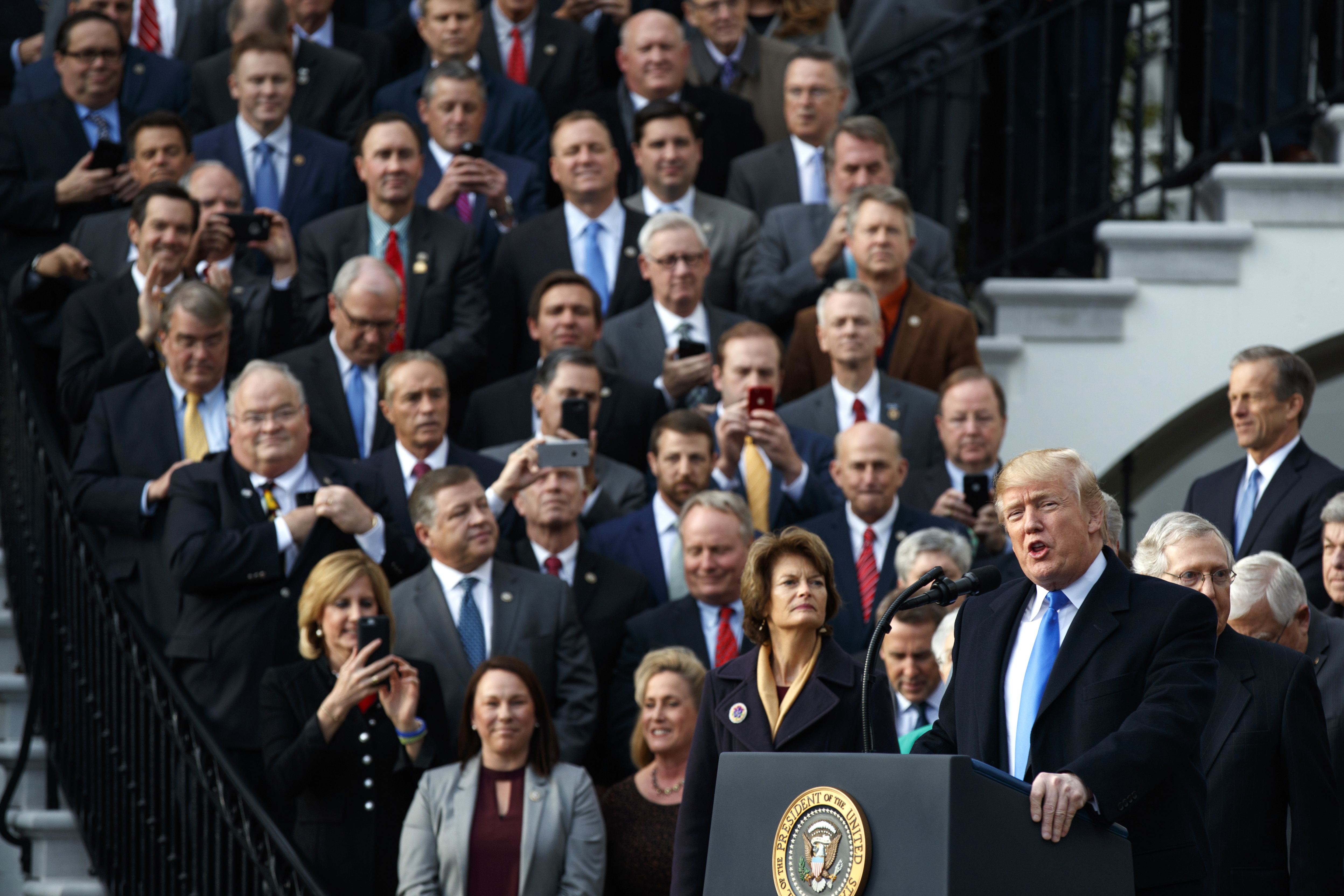As Republican members of Congress and President Trump celebrate the passage of their new tax reform bill by declaring it as a “big, beautiful Christmas present” to middle class families, the largest U.S. banks are celebrating their new billions by lining the pockets of their shareholders.
In the words of one of Goldman Sachs’ top analysts: large banks will “benefit disproportionately” from the new law, and a lot of the profits will go to shareholders.
Last week, Richard Ramsden, business unit leader of Goldman Sachs’ Financials Group in Global Investment Research discussed the impact of the tax reform law on large banks, as a guest on the banking Goliath’s in-house podcast. He said his projections were based on discussions with leaders of other large banks during Goldman Sachs’ annual Financial Services Conference held earlier this month.
“Banks though, do benefit disproportionately in some ways, in that 90 percent of bank earnings are domestic and banks do have relatively high tax rates,” Ramsden said during the podcast
Ramsden also estimated that only one-third of the billions large banks are expected to gain from the tax bill — which cuts the corporate tax rate from 35 to 21 percent and creates a low one-time repatriation tax — will be reinvested back into the company, with the rest going to shareholders and their bottom lines.
Goldman Sachs could see a tax break worth up to $6 billion from the new tax law that was signed by Trump on Friday. The firm has acknowledged that the new law will be a huge boon to large banks.
Goldman says the tax bill will be good for the big banks: pic.twitter.com/KyaD5KVT8C
— Jim Tankersley (@jimtankersley) December 18, 2017
The largest U.S. banks are currently sitting on $100 billion of capital, which means the money gained from the tax bill aren’t “really needed by the banking industry to support growth,” Ramsden said last week, before the bill was passed and signed by the president.
As a result, a lot of that excess capital will be returned to shareholders. “There are shareholders who frankly would like to see some of the capital returned to them so that they can invest in other areas that are growing quicker… I do think over the next few years, banks are looking for opportunities to grow their dividends as a way of providing a better yield to shareholders,” Ramsden said.
He estimated a third of the tax reform benefits will go to the bank’s bottom line, benefiting shareholders, a third will be competed away, and a third will be reinvested into the company– likely being used to accelerate some already planned projects.
“A lot of this capital as I mentioned isn’t really needed by the banking industry to support growth, so a lot of it will either be, as I said invested in the business or returned to shareholders or competed away over time,” Ramsden said.
Ramsden also expected corporations to use the billions gained through repatriation to acquire other firms and “accelerate their growth profiles.” While, overall banks expect to see some job growth and wage hikes among their consumers, he and Wells Fargo CEO Tim Sloan have made clear that the priority will be to use that new money to line the pockets of their shareholders, not the average worker.
“Is it our goal to increase return to our shareholders and do we have an excess amount of capital? The answer to both is, yes,” Sloan told CNN Money. “So our expectation should be that we will continue to increase our dividend and our share buybacks next year and the year after that and the year after that.”

